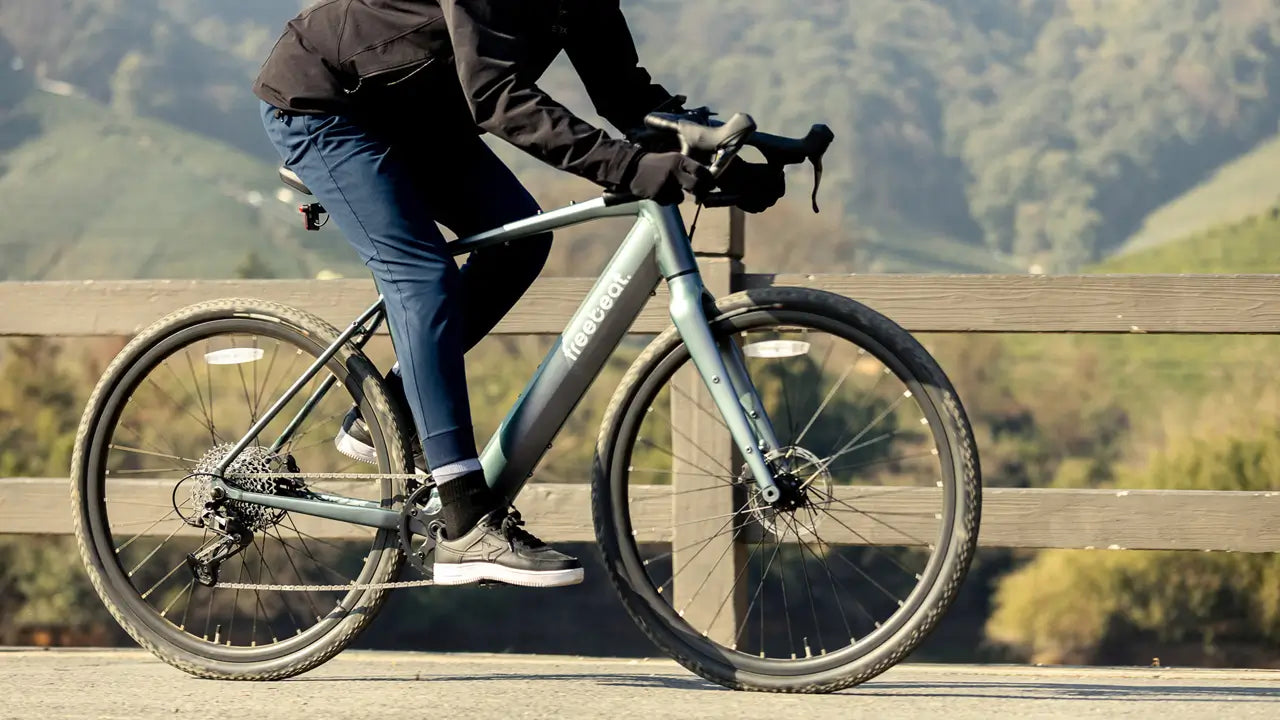10 Reasons to Take Up Cycling and Bike Your Way to a Healthier Life
In the age of pandemic and pollution, the humble bicycle is making a dramatic comeback. It's not just a mode of transport; it's a gateway to a gamut of health benefits that can transform your life in ways you never imagined. Whether you're considering cycling for fitness, environmental reasons, or just eager to experience the sheer joy of the wind in your hair, dedicating some time to pedaling can be incredibly rewarding. Here are 10 convincing arguments for you to dust off that bike in your garage or invest in a set of wheels that could be the foundation of a more active, healthier lifestyle for you and your family.
1. Cycling as a Green Commute Solution
With the environment facing unprecedented challenges due to a surge in carbon emissions, bike commuting stands out as the green antithesis to traffic jams and car fumes. By swapping the four wheels for two, you'll significantly reduce your carbon footprint. Not only does choosing to cycle cut down on greenhouse gases, but it also helps decrease traffic congestion and curtails the need for non-renewable fuels. If you live within a reasonable distance of your work or daily destinations, adopting cycling as your primary means of getting around can amplify your role as an eco-champion.
2. Weight Loss and Cycling - A Dynamic Duo
For those looking to shed some pounds, cycling can be a game-changer. It's an effective cardiovascular workout that also engages various muscle groups, leading to calorie burn and muscle toning. A leisurely bike ride is a great way to start, and as you build stamina, you can ramp up the intensity for a more challenging workout. The increased rate of metabolism associated with regular cycling can be a boon for weight loss and weight management.
3. Heart Health on Two Wheels
The benefits to your ticker are not to be underestimated. Getting your heart rate up with cycling can improve cardiovascular health, reducing the risk of heart diseases and strokes. Regular cycling strengthens the heart muscle, lowers resting pulse, and decreases blood fat levels, which all contribute to a healthier heart. Studies on the benefits of cycling have also shown that cycling to work can cut the odds of developing heart disease in half compared with a non-active commuter.
4. Mental Health - The Uplifting Side of Cycling
The mental well-being experienced through cycling is multi-faceted. It's not just the endorphins from exercise that provide that 'feel good' factor - it's also the outdoor environment and the sense of accomplishment from reaching your cycling goals. Cycling has been linked with reducing stress, anxiety, and depression. Studies demonstrate that engaging in physical activities, such as riding a bike, can elevate mood and enhance overall cognitive function.
5. Cycling to Build Stamina and Strength
Cycling is a low-impact exercise, suitable for people of all ages and fitness levels. Regular cycling helps improve muscle strength and joint mobility, particularly in the lower body where the majority of the pedaling action takes place. Whether you're tackling hills or building speed on the flats, cycling regularly will build endurance, leaving you more energy for the day.
6. Biking for a Better Immune System
Exercise is one of the cornerstones of a healthy immune system, and cycling is no exception. Regular physical activity can contribute to a stronger immune response. Moderate exercise, such as cycling, can help flush bacteria from the lungs and airways, reduce stress hormones, and increase the production of antibodies, leading to a more robust immune defense.
7. Financial Perks of Pedaling
Cycling doesn't just pay in health dividends; it also acts as a prudent financial investment. With the cost of maintaining a bike being a fraction of what you would spend on a car, and the increasing popularity of commuter bike lanes, more people are starting to view cycling as a form of personal finance management.
Investing in a bicycle as your primary mode of transport can save you on wear and tear of a car, fuel costs, parking fees, tolls, and public transportation fares. Additionally, bikes rarely devalue compared to cars, and you no longer need to budget for a gym membership that you may be using for cardio.
8. Rediscovering Your Community on Two Wheels
Cycling can be a social activity. Joining a local cycling club or taking family and friends on bike rides can lead to a more connected existence. Exploring your neighborhood, town, or city trails can bring about a rekindled sense of community and appreciation for the outdoors.
In addition, cycling events, such as charity rides or local races, provide outlets to engage with like-minded individuals and contribute to worthy causes, all while having fun on your bike.
9. Improving Air Quality - For You and Your Community
By choosing not to drive, you're helping to reduce air pollution, which not only benefits the environment but also has direct positive effects on public health. Vehicle emissions are a major source of air pollution, so the more people who cycle, the cleaner the air becomes. In urban areas, especially, where cycling may be the most efficient mode of transport, the collective impact can be significant.
10. Electric Bikes: The Game-Changer for All Ages
The advent of electric bikes (e-bikes) has significantly furthered the democratization of cycling, making it an even more inclusive activity. Thanks to the innovative pedal-assist feature, e-bikes offer a unique combination of convenience and accessibility, opening up the world of cycling to a wider demographic, including seniors and individuals with limited mobility. This feature allows riders to adjust the level of assistance they receive, making it possible to cover longer distances or tackle challenging terrains without the physical strain associated with traditional cycling.
Despite some debates around the 'pedal-less' nature of e-bikes and concerns that they may diminish the physical benefits of cycling, it's undeniable that e-bikes possess the potential to attract individuals who might not otherwise consider cycling as a viable mode of transportation or form of exercise. By providing an easier entry point, e-bikes can encourage more people to get out on the road, contributing to increased physical activity levels among populations that may face barriers to traditional forms of exercise.
Furthermore, the rise in e-bike popularity benefits not only the individual users by enhancing their mobility and physical health but also the broader community and the environment. Increased use of e-bikes can lead to reduced traffic congestion, lower carbon emissions, and improved air quality, aligning with broader goals of sustainable urban development and environmental protection. For further insights into the comparison between hybrid bikes and mountain bikes, please visit: Hybrid Bikes vs. Mountain Bikes.
If you're hesitant to commit to an intense bike ride, consider starting with an e-bike. Ideal for beginners easing into a fitness routine or seasoned cyclists needing extra support on tough rides, the right accessories like helmets, gloves, lights, and frame bags can significantly improve your eBike experience. The freebeat MorphRover 2-in-1 eBike, acclaimed as the best electric bike for both men and women, offers a seamless transition from outdoor adventures to indoor training, ensuring a dynamic and adaptable riding experience for every enthusiast.
Key Takeaways and the Path to Your First Pedal
The benefits of cycling are extensive and long-lasting, extending into both physical and mental realms. By taking up this activity, you stand to gain improved overall health, decreased environmental impact, social connections, and even financial savings.
If you're new to cycling, start with small, achievable cycling training plan and gradually build up your distances and speeds. Whether you're enjoying a scenic route to work or challenging yourself on a steep mountain trail, the road (or trail) to better health is just a pedal away.















